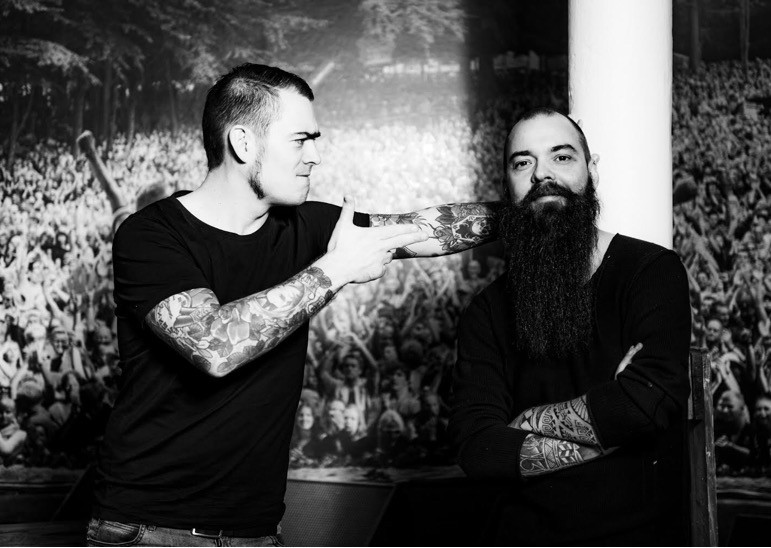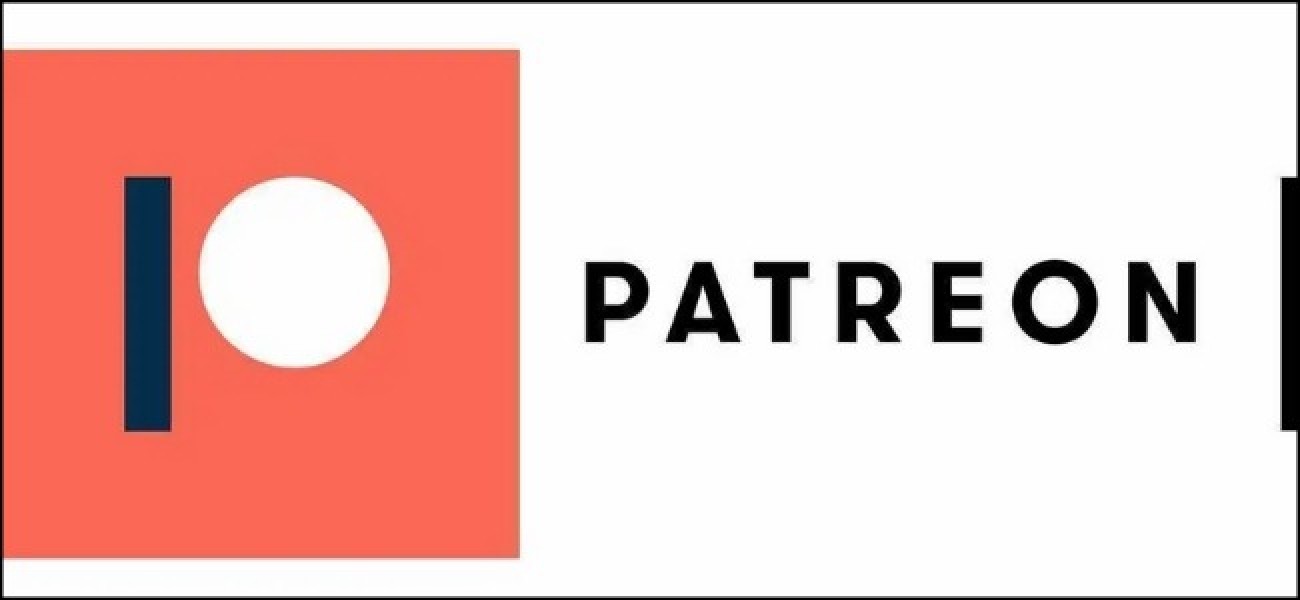Many bands are undeniably great at writing music and playing it live. But is talent enough to succeed in the fierce and competitive music industry? Who takes care of business errands while the band is on a creative retreat? Heartbeat Management, launched by Thomas Bredahl and Stefan Facius, represents some of Denmark’s hottest acts: Baest, Lydmor, Go Go Berlin, and more. We talked with Thomas about the role of a band manager, his own experience playing in Volbeat, signing new artists and handling disagreements.
How did you decide to create Heartbeat Management agency and become artist managers?
Stefan and I got to know each other during high school times. Our town was small, but there was a vibrant music scene, and a venue where bands rehearsed and volunteered. So we met.
I think there’s a person in every smaller band who takes responsibility for organisational tasks. They arrange the gigs, prepare press materials without realising that this is actually the manager’s responsibility. Stefan and I were both those guys in our bands.
Eventually, we each went our own way. Stefan got a job as a booker, then started his own booking agency, and later worked for another agency within Universal Music Group.
I continued playing with my band but was also involved in the booking business. It wasn’t profitable but it was fun. And it helped our band get the right connections to start playing outside Denmark. So I began to learn the basics of the business.
In 2006 I got hired as a guitarist in Volbeat and stayed with them until 2011. I had played around 500 shows in those 5 years, but suddenly it all ended. What do you do in such moment? You realise that you’re suddenly older and think, “what the hell am I gonna do next?” I was still interested in the music business, so I called several people from the industry, inviting us for coffee or lunch. Stefan was among those people.
This is how we reconnected. We had never been hardcore friends, but after that meeting – I would not say we fell in love with each other, it would sound interesting – but on the business level, we did.
Soon Stefan decided to quit his job and offered me to start a management company together. He had discovered a band called Go Go Berlin. He said, “they are great but nobody gets them. I think you will get it.” And I was like, “yeah, let’s check it out.” We met up with the band, and it all started.
Could you describe the main duties of an artist manager?
Well, it is very broad and varies from band to band. Generally, as a manager you have a full business responsibility of the artist. The dream scenario is that they can focus on what they are good at – creating music – and we take care of the rest. From social media to the tour or release planning. You find partners, a label, a booker, and make sure that it all goes in the same direction. In Denmark, there are many funding opportunities for arts, so our work also includes making those applications. We do some financial tasks, sometimes work on the artist’s visual identity. Our role can be anything from art directing to accountants, from strategic development to travel agents.
The manager is also normally a friend. We are hired as managing directors for a company we don’t own. It is the artist’s career, and they trust us to help them manage it in the best way.
How do you and Stefan divide the tasks?
Luckily, Stefan and I are very similar. We are from the same part of the country, we have the same mindset. But we are also very different, including in music preferences. Stefan is good at being a personal manager, getting great strategic ideas, designing stuff. I’m a bit more into contracts, economics, planning. We complement each other. A lot of musicians have just one manager, but we are a team.
Some of the bands we signed up first, like Go Go Berlin, Stefan and I still manage together. We are like parents who can’t leave their child. This is also good because when one needs a break, another one can take over.
What is the most exciting and the most challenging part of the artist manager’s job?
The most exciting part is to have an artist and to start doing stuff. I love to-do lists, I love long-term planning. All these first steps and the satisfaction of fulfilling the plans.
Of course, one of the most annoying parts is when it doesn’t go as planned. For example, you have a great plan, but the artist gets a creative block. There may be a plan for an album which is not even written yet. It is also difficult when we don’t hit our commercial ambitions. After all, that is what we are hired for, there are certain expectations.
Sometimes I compare the music business to football. Often, after ending their playing career, footballers get a job as a coach, sport director, in sport media. Stefan and I are coaches or sport directors in music. When we see our artists succeed, we are proud coaches of the winning team. So I think the most exciting part is to see our artists accomplish something. Not just commercially. When they play a great show, it reminds us why we fell in love with music in the first place.
Have you ever been in a situation when the artist had a certain vision but you as a manager had different ideas? How do you find the balance?
Of course, it happens a lot. And you argue a lot. Stefan and I also do it internally. If we don’t agree, we argue. Then we compromise. We can’t force the bands to do anything – they are the client, the owner of the product. We can only suggest. We can argue if we think an idea is stupid, but normally it is just a discussion. However, when an artist is categorically not listening to their management, there is a problem. It is not because we are necessarily right. But we do spend a lot of time figuring the things out and talking to different people in the business. We have a view on the problem from different perspectives.
When we had just started, we wanted to have some control. But we realised that, with certain artists, it is better to just ask what they want and then work to facilitate that. We should remember that we are not magicians. We can’t sign an artist and make everything work smoothly from the start. It is still a team effort. It goes up and down.
Some people start working in the music industry because they couldn’t “make it” as a musician. In your case, it was the other way around. You started off in a famous band. How did it feel to switch from this creative environment to managerial tasks which require a lot of concentration and attention to detail?
Well, I didn’t start in a famous band. I joined Volbeat at an early stage. On our first European tour we played for a few hundred people. But of course I felt the transition, and it took some time to get used to not being on stage. However, I have always found it interesting to work behind the scenes. Back in school, I imagined myself managing a venue.
I still attend a lot of shows and rehearsals, participate in interviews. But I don’t have to do all this. Being in a band is really time-consuming. There are other ways for me to make a difference.
Does the experience in a band help you understand the artists better?
You should ask one of my artists about this instead. But I think it does. The experience helps me foresee some potential issues. I understand that touring can be hard, for example. But I can also be tough. When artists start complaining, I can tell them about my punk rock days where we slept on venue floors. Once in Berlin, we had to sleep in an apartment with no windows in winter. And when they say how difficult it is to be away from girlfriend for two weeks, I tell them about being on tour in America for 1,5 months when my daughter was three weeks old.
It gives an advantage to know the industry from the inside. But maybe sometimes you don’t need someone who knows it. If this is what you want to do, you should be ready to overcome the obstacles.
Heartbeat’s roster includes a few established names but the majority are new, upcoming artists. How do you choose who to work with: is it a gut feeling or rationality?
Of course, we can’t sign every artist we run into. We have to say no to a lot of people who reach out to us. Mostly, we just don’t have time. We are just five people in the office. Taking on a new artist is difficult and takes years of work.
I would love to say that it is only gut feeling and good music that guide our decisions. But we have to be mindful of the business side. Obviously, new acts don’t make any money and neither do we. But, when signing an artist, we need to understand if this is something we believe we can help develop.
Indeed, half of our roster are small and yet unknown acts. But we like to have something new and fresh. It is so fun to find someone you believe in and try to make it a bit more commercial. Sometimes, all we have to do is ask ourselves how pissed we would be if somebody else signed this artist. We sign them because we freaking need to, because this is great! As an independent company, we don’t answer to any boss or investor. So if we want to do something, we just do it.
Going back to the beginning of the story and our company, nobody believed in Go Go Berlin. Rock was just not happening. We liked them, and we thought there was a space for that. In the first few meetings, people were unsure because that was not “something you hear on the radio”. But we had an answer. Stefan used to book Lukas Graham. 15 years ago, who would believe in a white Danish guy who sings soul-pop? And what about a mixture of Elvis and Metallica, would you sign that? No? Ok, but Lukas Graham and Volbeat became two biggest bands from Denmark. When someone says it is not what people are listening to right now, we say that it is what people will listen to in five years. So let’s get going.
What do you consider the absolute highlight in the Heartbeat story?
This is a tricky question. You can say that the highlight is when you get your first paycheck and see that the company can survive another year. Or it is the recognition when your artist creates a successful album or plays a great show, performs at a big festival like Roskilde or Northside. Or when you sign someone you really wanted to work with.
One of our artists made me a present last Christmas, which was kind of a highlight. She gave personalised presents to everybody in the team. I got a book of a guy who was running the National Museum of Denmark. He is kind of a crazy guy, successful in business but creative at the same time. My artist said, “I saw you in the book. You can talk creatively but you also have that hardcore business mind that gives a different perspective.” I appreciated it a lot.
So it is difficult to find just one highlight. Maybe it is because we still need to conquer the world. Or maybe a highlight will happen later today? Who knows?





